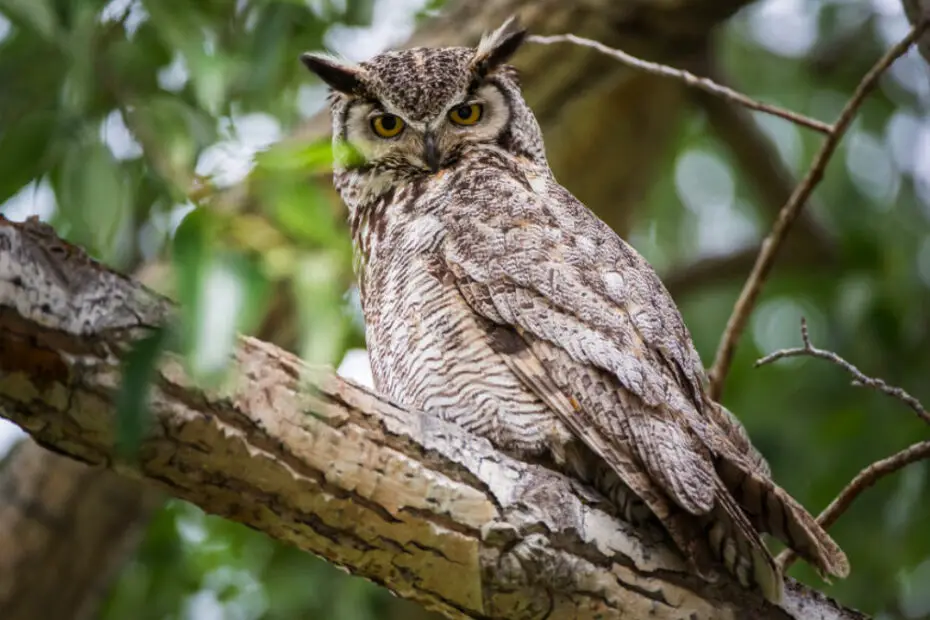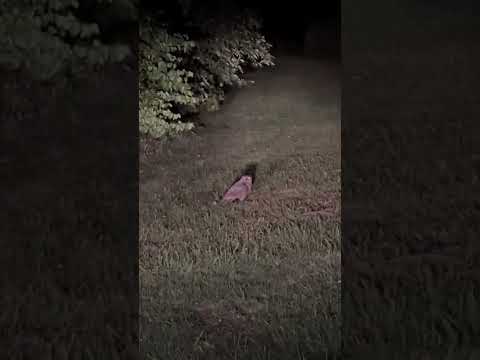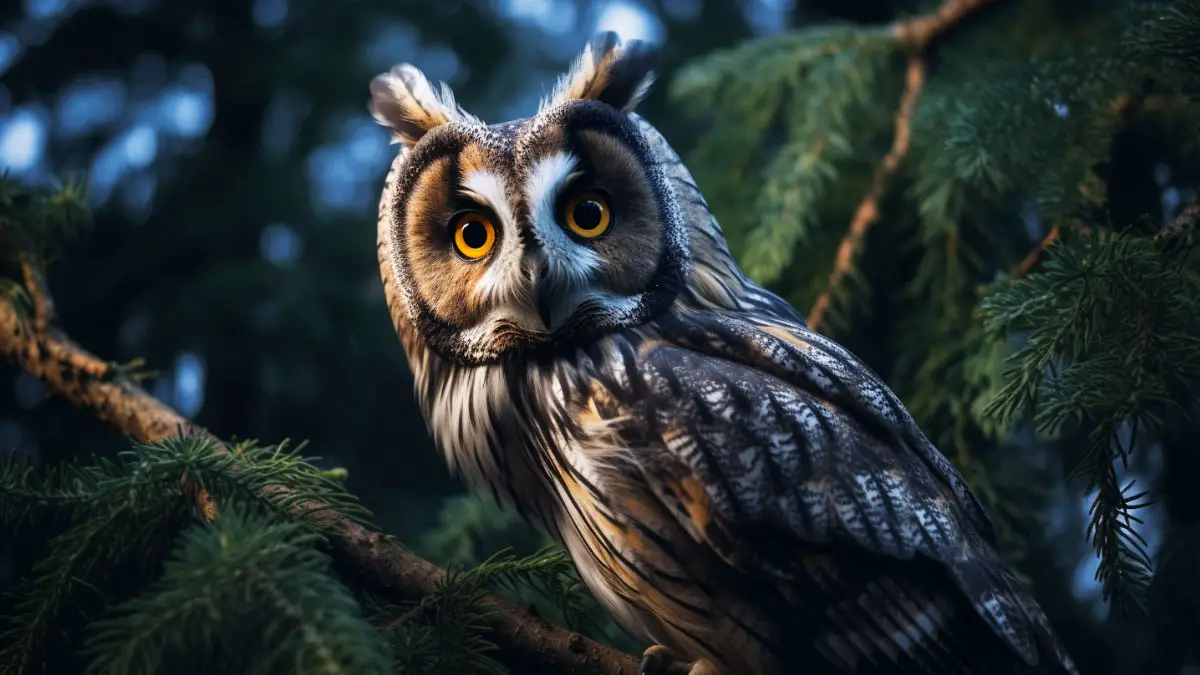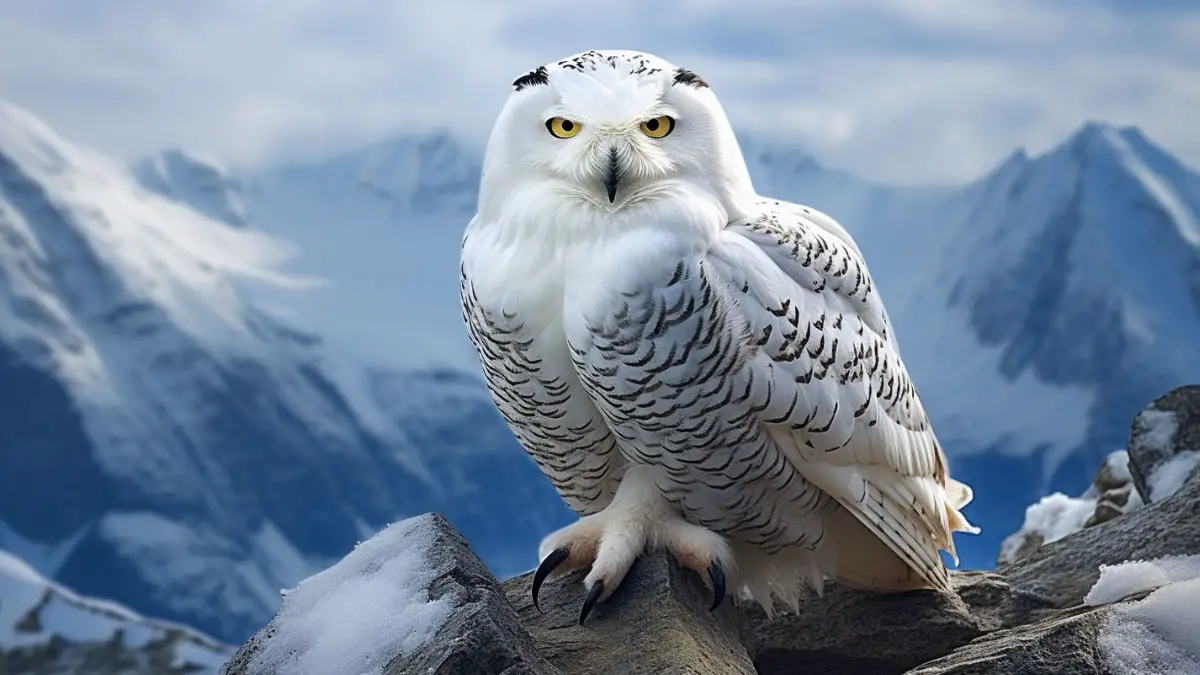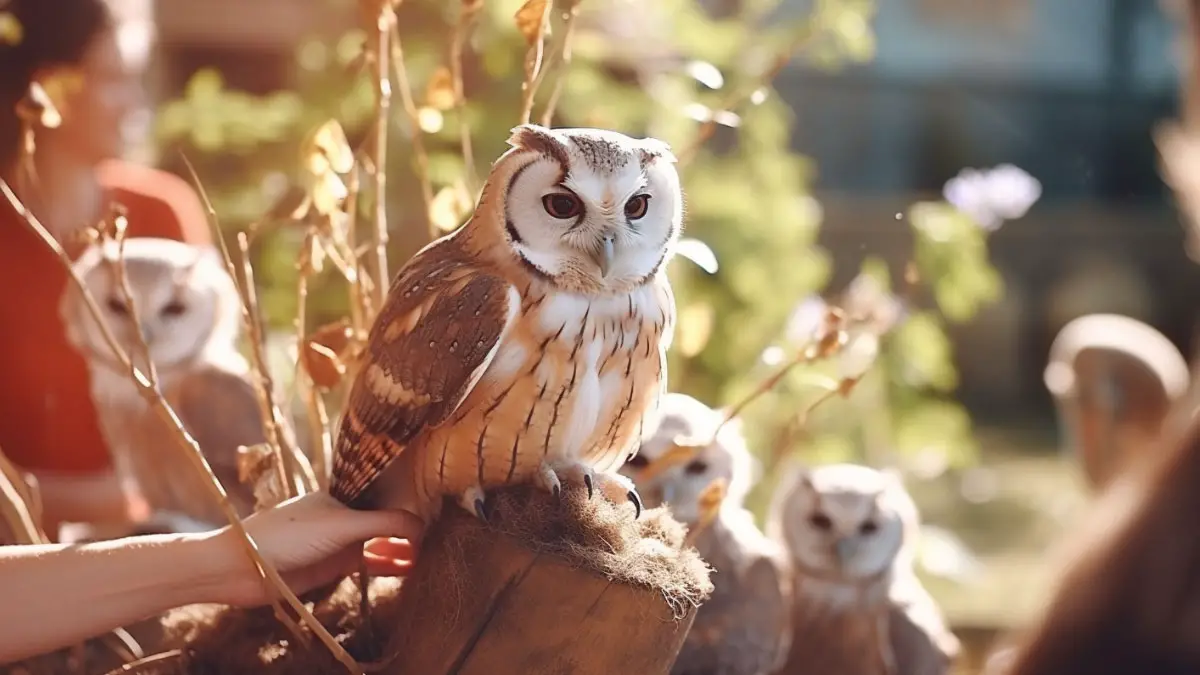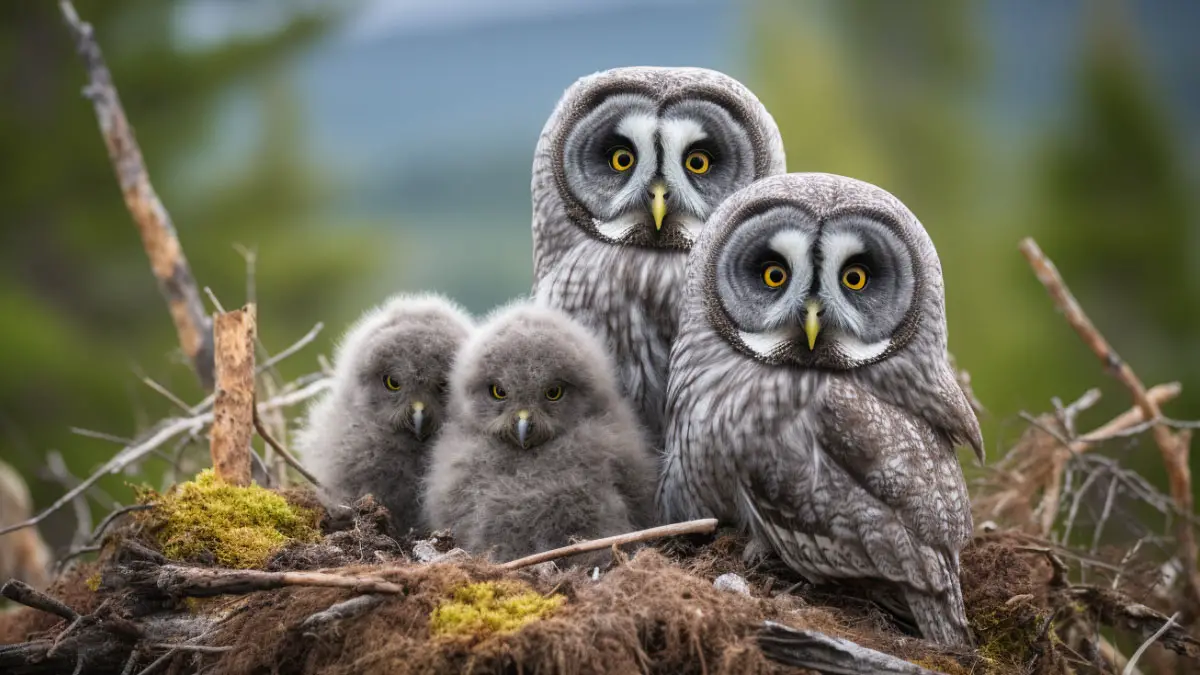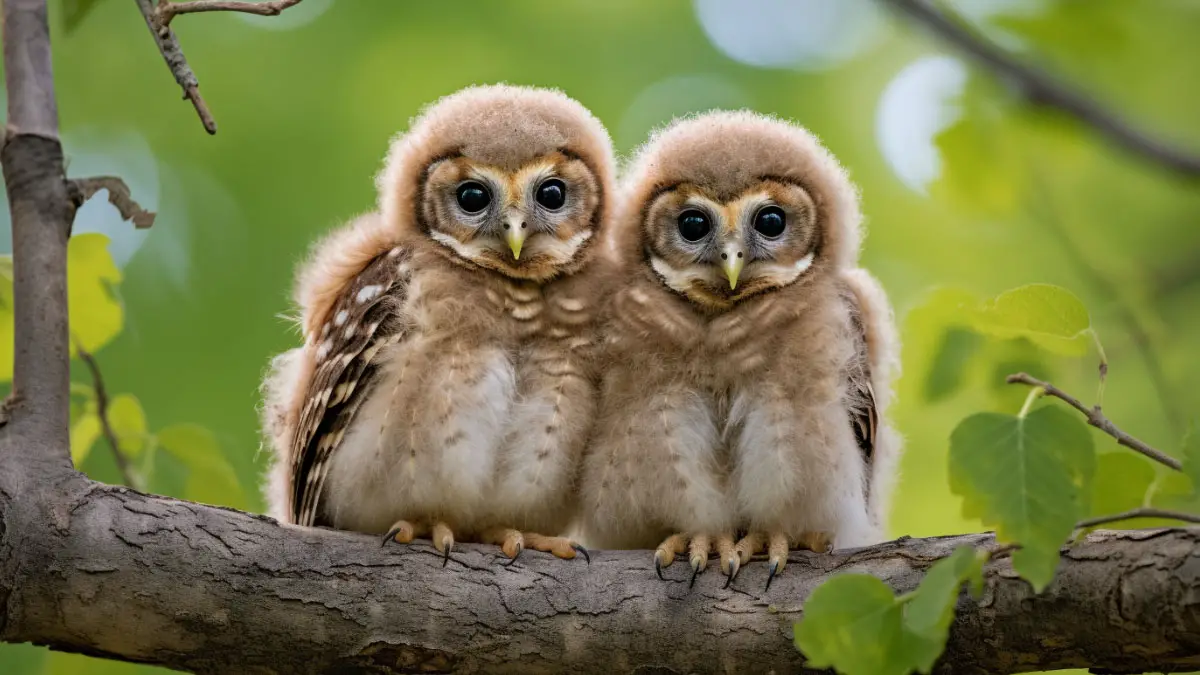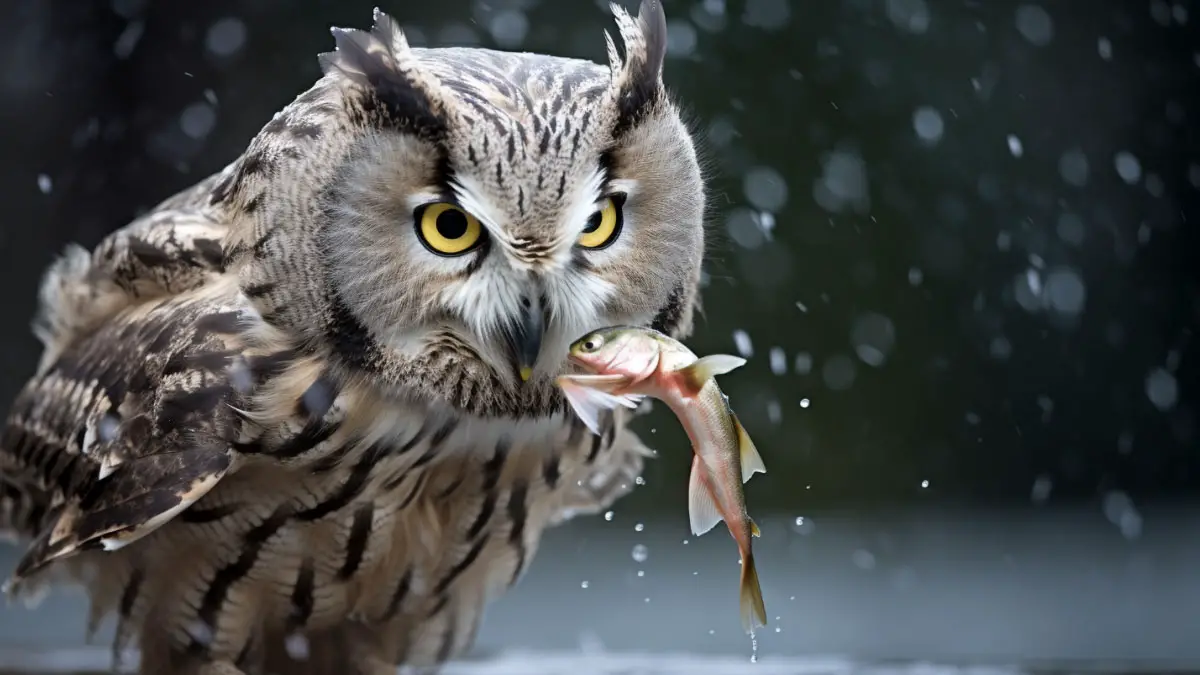Owls live by hunting various animals. In their daily diet, they sometimes add unusual animals as well. From this aspect, many people are curious about skunks and whether it is their unusual diet or not.
So, this article is about “Do owls eat skunks or not?” Some owl species are seen eating the skunks, where evidence presents that some species have never seen having one. The most common species that eat skunks are the Great Horned owls, Eastern Screech owls, and Northern Pygmy owls. The young owls can eat but can not hunt the skunks because of less experience and the wrong strategy.
This is only a gist of the article. Stay with this article to get a detailed discussion about this topic!
Do Owls Eat Skunks? Few and a Far Between!
The wild carnivorous animals, like owls, fulfill their diet by hunting smaller animals than their size. As they can not digest plant origin, they have to struggle more to find their food.
Owls prey upon many animals to fulfill their hunger. They commonly hunt small insects, mice, and small birds. While looking at their unusual diet, they also can eat grasshoppers, rabbits, fish, and skunks. But hunting these animals is not a regular scenario.
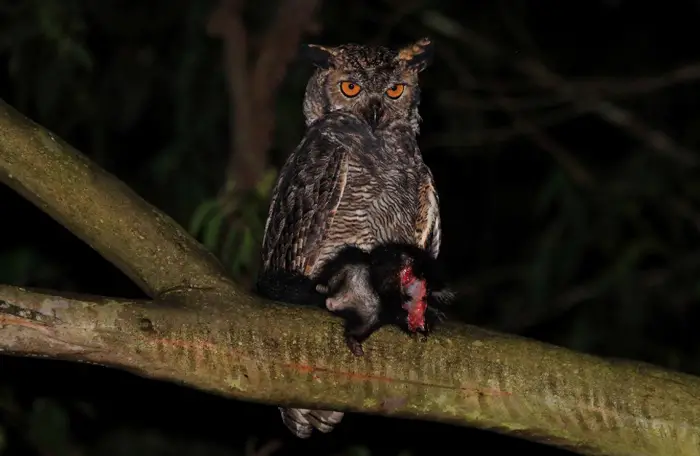
While they do not get other options to hunt, they choose these animals. Also, if the area has an abundance of these animals, owls are commonly seen hunting them.
In the owl species, Great Horned owls are commonly seen hunting skunks. Great Horned owls are expert in hunting, and their techniques are unique. They love to eat the delicious flesh of skunks. Skunks often come out at night to search for food. This is the time when Great Horned Owls attack them. As they are nocturnal and can see at night, hunting is easy for them.
Also, their hearing is keen. They can easily detect the movement of animals. With their sharp claws and efficient hunting capabilities, they can prey upon skunks. If Great Horned Owls see a skunk, they will not miss the scope of hunting.
Skunks are smelly animals. So, many animals do not prey on them due to the strong smell. But the Great Horned Owls’ poor smell capability helped them to catch this smelly animal. The smell does not bother their hunting process.
The Eastern Screech owl and Northern Pygmy owls also hunt skunks. But they will search for the animals first, which they can hunt easily. If there is no such animal present, then the owl will take the initiative to catch a skunk. So, you can occasionally see an Eastern Screech owl or a Northern Pygmy owl prey upon a skunk.
This is a video showing an owl catching a skunk.
Do All The Species Of Owl Prey Skunks?
No, all the species of owl do not prey on skunks. Skunks are not the primary source of food for any species of owls.
Also, skunks are not easy to catch. They are always alert of predators, and skunks know the strategy of self-defense. They are tough competitors and fight with the owls. For these reasons, owls choose other smaller animals as their first choice.
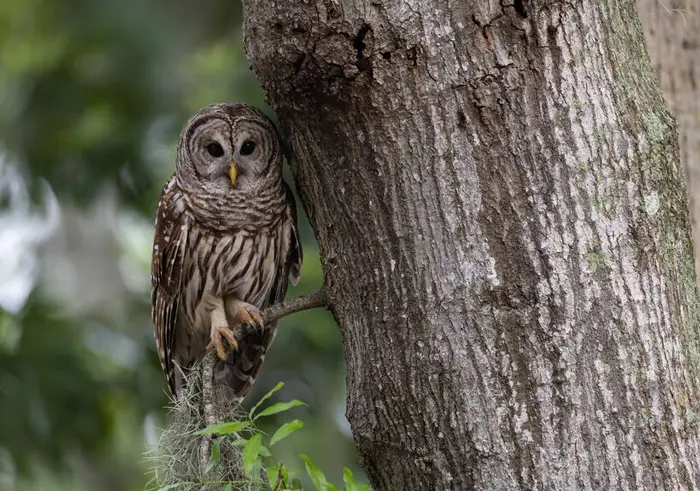
The Barred owl is rarely seen catching a skunk. But this species has to struggle more as they are not good at hunting like Great Horned Owls. Barn owls and spotted owls are never seen hunting skunks. They choose easy-hunting animals.
Can The Young Owl Hunt Skunks?
Young owls can not hunt skunks. Young owls are not physically as strong as mature owls. Also, they have less experience of hunting. So, hunting skunks is harder for them. But young owls can try catching young skunks or baby skunks by seeing their parents.
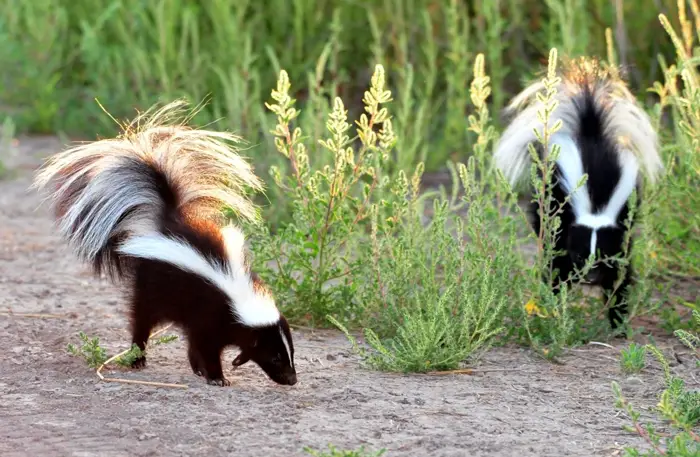
The mother owls hunt for their children. In the beginning, a young owl could never hunt bigger animals. Rather, they are trained to catch insects, earthworms, and rats. With time, they gain experience in catching stronger animals. For the first few attempts, a young owl can not control and hunt a skunk.
What Factors Discourage Owls To Hunt Skunks?
While hunting any animal, some factors can influence or diminish the wish of hunting by the predators. Most of the species of owls are not willing to hunt skunks. Until there is less availability of food, most of the owls do not hunt them. Some factors that discourage hunting skunks are given:
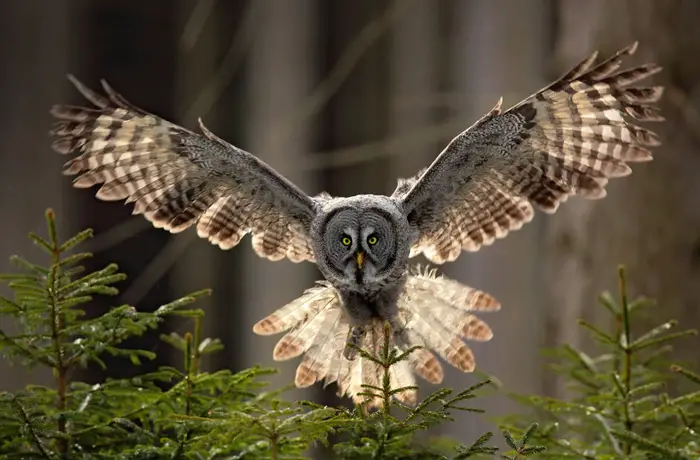
More Availability Of Food Or Less Availability Of Skunks
If the area is abundant with different animals, then owls will not prey on the skunks. Also, if owls live in a place where skunks are less available, then they will not chase after it.
Foul Smell Secrets While Hunting
The skunks secrete a rotten egg-like smell from anal glands. When any predator attacks on them, they secret the chemical immediately. Most of the predators do not like the smell and let the skunk go. Most of the owls do not like the smell except some owls like Great Horned owls. The smell is beneficial for the skunks, as most of the predators can not deal with this liquid.
Less Hunting Experience
Owls need more experience to hunt a skunk. As they are hard to catch, most of the owls do not try to catch them until they are extremely hungry.
Hunting Strategy Not Suitable For Skunks
Different species of owl apply different techniques of hunting. The Great Horned Owls apply the best techniques that can control a skunk. But other species of owls’ hunting techniques can not knock down the skunk. So, the owls get demotivated when their applied techniques do not work on skunks.
FAQs
These are some commonly asked questions by people about owls’ unusual diet skunks.
Owls attack the neck area of skunks. They never attack from behind. It is a way to save them from the liquid they secretion from the anal gland. They use their claws to hold or grab the animal.
Yes, skunks are afraid of owls. They identify owls as predators. But some skunks are also seen walking in front of an owl without any fear. They can show this behavior if the owls around them never attack.
After hunting a skunk, they eat only the flesh part. But before eating, the owls pull off all the furs. Later, only the parts that are not editable are left.
Conclusion
Not all the owls are that lucky to eat fleshes of skunks. It’s worth noting that owls may struggle to hunt skunks because skunks can be larger than their typical prey. Where the hunting technique is not enough for the owl to catch skunks.
But the Great Horned owls commonly hunt skunks due to their experience and suitable strategy. Also, they can handle the smell of skunks as they have poor smell sense. Owls can eat skunks, but not all the species have the luck to catch one!
